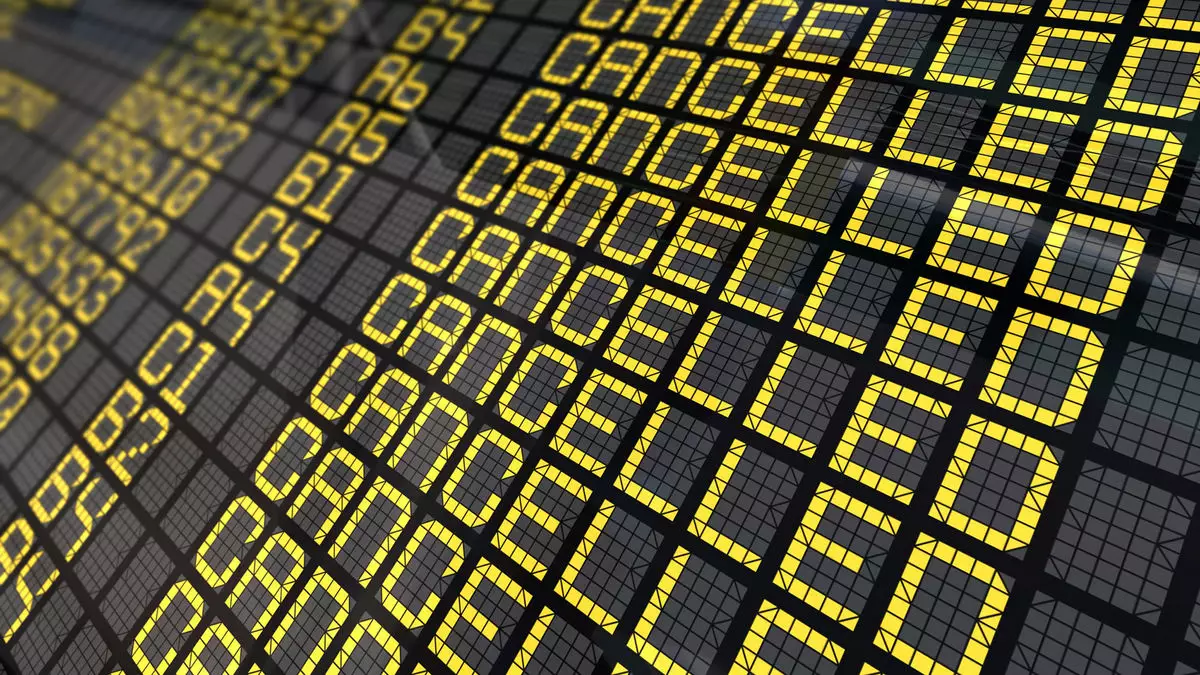As winter approaches its zenith, the arrival of Winter Storm Blair has wreaked havoc across significant portions of the United States, particularly disrupting air travel as the holiday season concludes. With the storm’s trajectory stretching from Kentucky to Delaware and affecting the Washington D.C. area, the repercussions on flight schedules have been profound, leading to a ripple effect that is being felt by travelers nationwide. The storm is not just a weather phenomenon; it encapsulates the challenges of seasonal travel and the complexities of logistics during adverse weather events.
Reports indicate that on a typical Monday morning, over 1,600 flights were canceled while more than 2,600 experienced delays, underscoring the storm’s severity. The Washington D.C. area emerged as a significant focal point for cancellations, with an alarming 61% of flights at Reagan National Airport being scrapped. Additionally, Baltimore’s departures faced a 38% cancellation rate, while Washington Dulles Airport saw a 25% reduction in flights. Airports in cities like St. Louis, Kansas City, and other midwestern hubs faced similar disturbances, leading to a major setback for holiday travelers trying to return home.
Winter Storm Blair began its disruptive journey on a Sunday, coinciding with the peak return time for many vacationers. The storm unleashed nearly a foot of snow in locations like Kansas City and St. Louis, bringing those cities to a near standstill. Its path has created a chain reaction, particularly as travel plans were already strained by the holiday rush. This onslaught of winter weather resulted in over 1,800 flight cancellations on Sunday alone and contributed to more than 9,000 delays—highlighting the systemic vulnerability of air travel during winter storms.
Not only did major airports feel the brunt of Blair’s ruthless snowy raiment, but the effects also extended southward to regions like Texas, where high winds and wintry conditions resulted in further disruptions at Dallas-Fort Worth Airport—totaling 199 cancellations. This reveals how no region is insulated from the reach of winter storms, making it essential for travelers to remain informed about potential weather impacts on their itineraries.
In light of such severe disruptions, airlines have stepped up by offering travel waivers to affected passengers. Many carriers are now allowing travelers to rebook flights without incurring additional fare differences, creating a buffer against the inconvenience. For those who may choose not to rebook, the provision for automatic refunds for canceled or significantly delayed flights serves to alleviate some of the frustration that many are feeling in this chaotic time.
The upheaval caused by Winter Storm Blair underscores the myriad challenges that result from inclement weather during peak travel seasons. As travelers navigate the chaos, it highlights the importance of flexibility and awareness in travel planning, particularly in a world where nature’s whims can significantly alter our carefully laid plans. While airlines are making efforts to support passengers, the reality remains that winter storms present formidable obstacles that can derail the best of intentions.


Leave a Reply